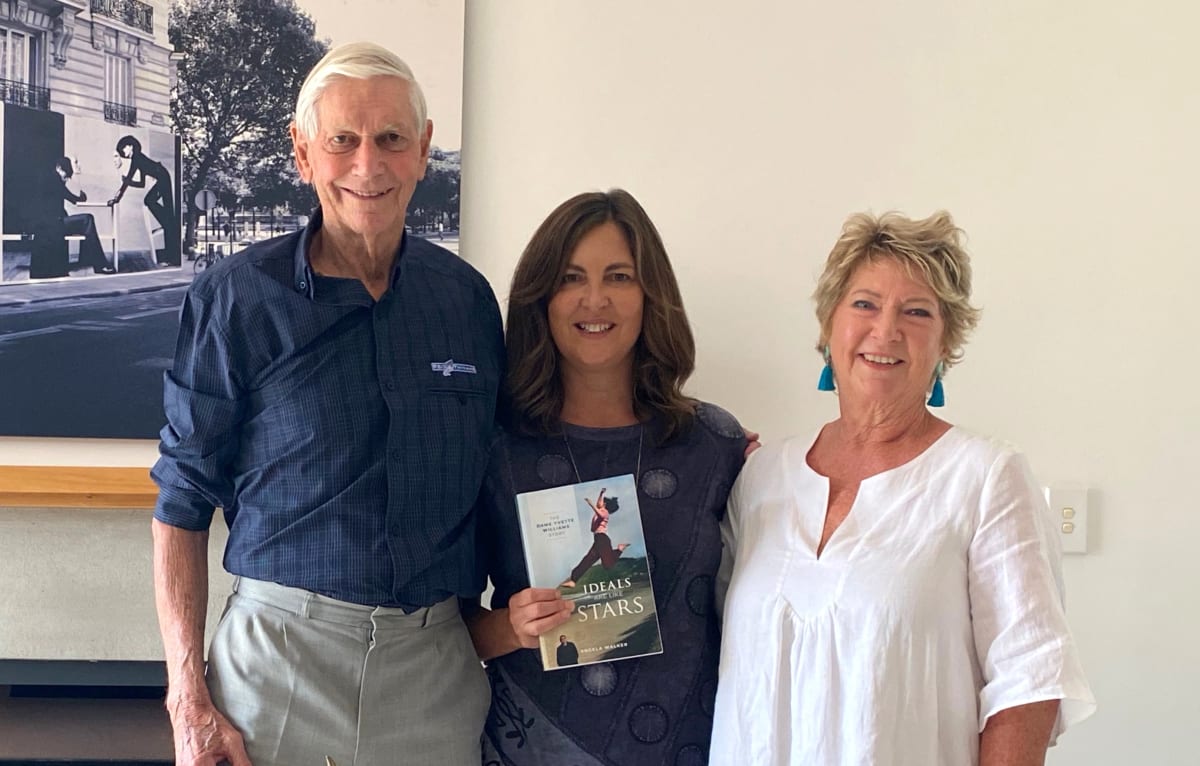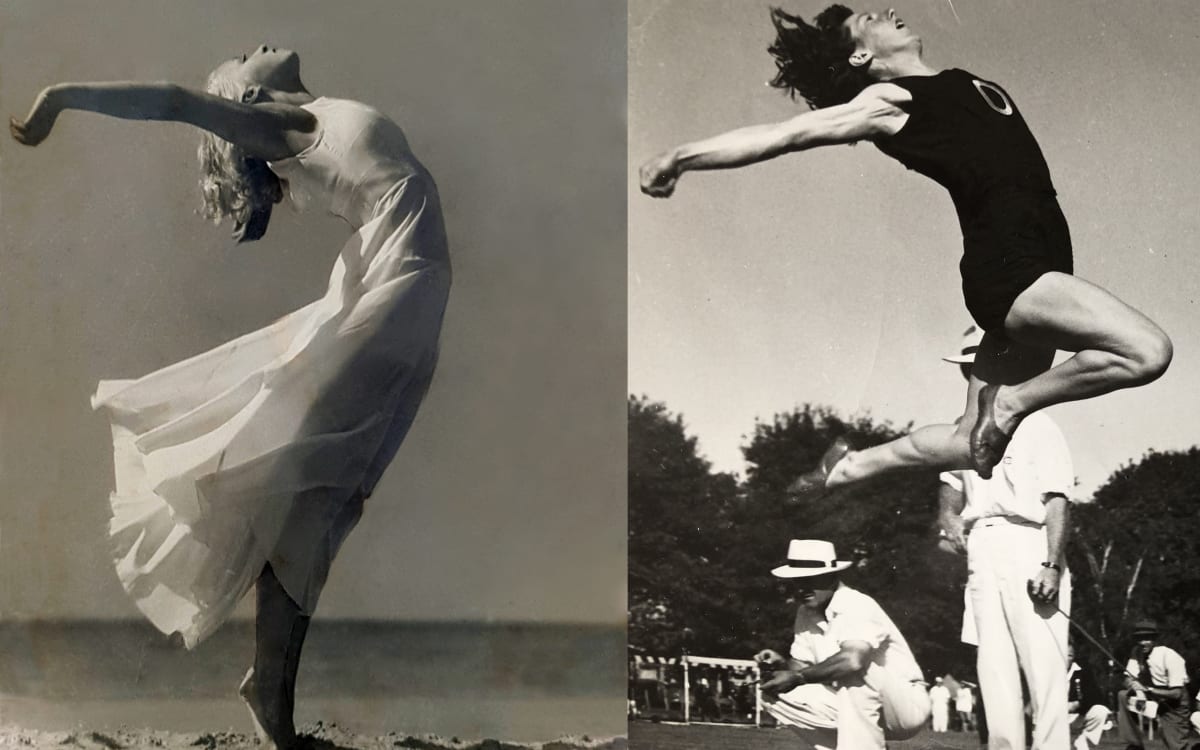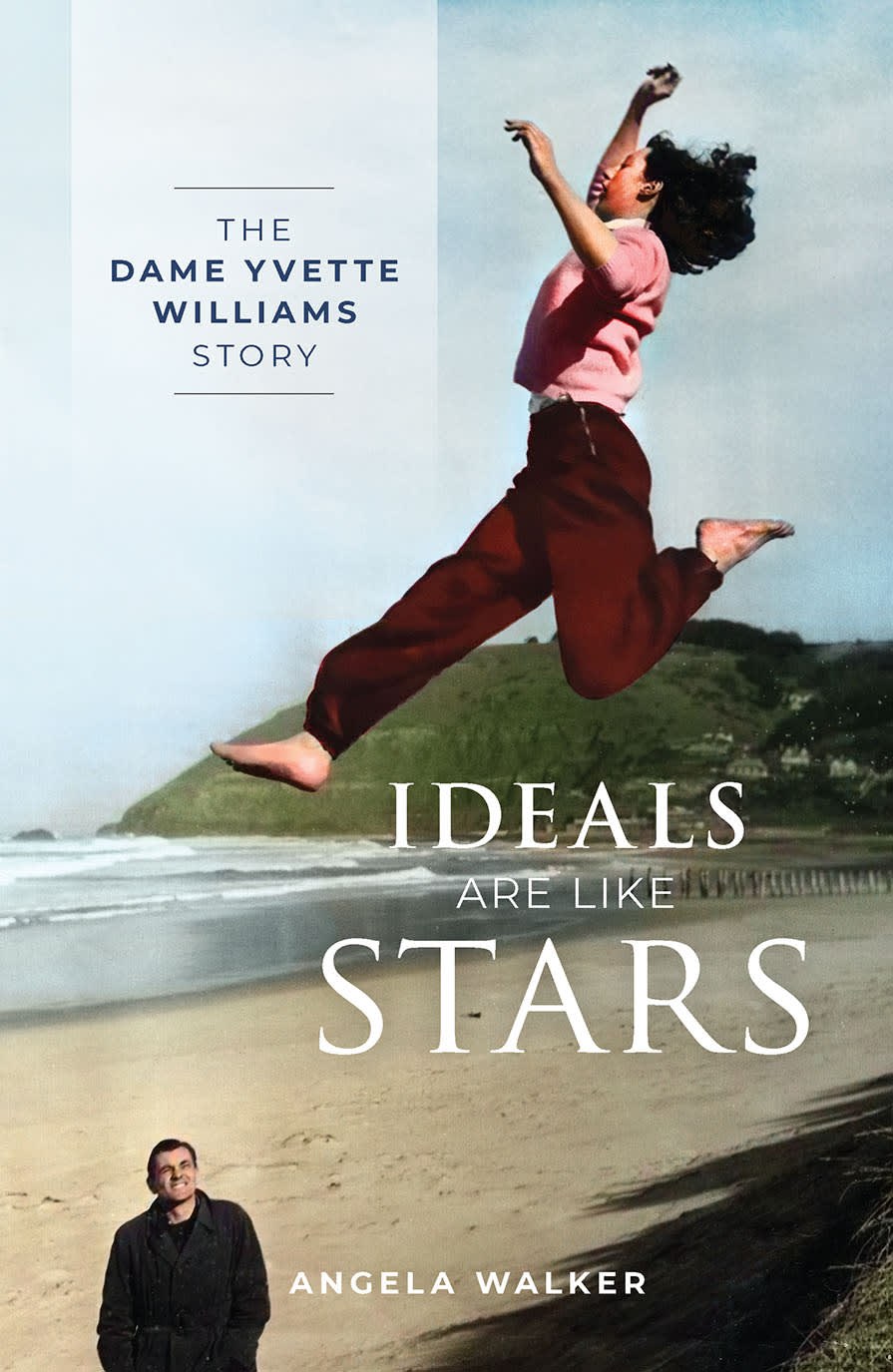
The first biography about Dame Yvette Williams is released today, and the New Zealand Olympic legend and the book's author, Angela Walker, share a surprising connection that "almost defies belief".
The stars aligned in 1952 for Yvette Williams to become the first New Zealand woman to win an Olympic gold medal – a feat that wasn’t repeated for another 40 years.
Amid the acclaim at the time, one newspaper reporter enthused: “Her fame should endure long beyond her own lifetime.”
Seventy years on, a new book – Ideals Are Like Stars: The Dame Yvette Williams Story - makes that possible.
The seeds were sown for me to write this book on 17 August, 2017. I know this because Dame Yvette Williams was a meticulous diarist, diligently noting the events of her day since she was a teenager.
On that August day, Yvette Williams (then aged 88) penned: “Karen [daughter] worked on computer all day while I read Angela Walker’s book about her father – an airman then POW during WW2. Very well written.”
While Yvette (who was born on Anzac Day 1929) was enjoying the book I’d written about my father’s war, I was busy pondering what I might write next. As it happened, I secretly dreamed of telling her story.
Yet why was there not already a biography about her? After all, no one had forgotten to tell the stories of our other athletic greats: Peter Snell, Murray Halberg, John Walker, Jack Lovelock, amongst others. Surely there should be an Yvette Williams biography too?

Her daughter thought so too. Karen Corlett suggested to her mother during the final months of her life that perhaps I would be her ideal biographer.
Ever-humble, Yvette replied: “Oh there doesn’t need to be a book about me.” But then, according to her daughter, “she warmed to the idea and was rather ‘tickled pink’ by the thought.”
None of this I knew at the time, although, remarkably, I was still dreaming of telling her story. So when her family asked if I was interested, not long after her death on April 13, 2019, ‘interested’ was an understatement.
Some may imagine writing a book to be a lonely experience. But in researching and writing this story, it was impossible to feel lonely, joined as I was by a young Yvette, her diaries transporting me to the 1940s and 1950s, to the fun and whirl of life in an era before people were more inclined to stay home and watch TV.
There was always a party or dance to attend, a new film to see, a milkshake to be sipped with friends, a dress to be sewed, a never-ending whirl of social engagements to be fitted around sport and work.
Young Yvette managed to pack so much into her days, I began to wonder what on earth I’d been doing with my life.
The more I learned about her story, the more gripped I became. Hers was much more than a sports yarn I realised, as I glimpsed fascinating slices of social history and unravelled the unique factors that had enabled her to become an Olympic champion in the 1950s while her peers were becoming housewives.
Despite the different eras we lived in, Yvette Williams and I had much in common, including a surprising connection that almost defies belief: We shared a coach!
Even though the Olympics Yvette and I each competed at were held 36 years apart, and we competed in different sports – Yvette in long jump, shot put and discus, and myself in rhythmic gymnastics – we actually had the same coach: the extraordinary Emmy Bellwood.
Courtesy of the information age, I was able to glean fascinating details about how our former coach had fled Estonia during World War 2 in scenes reminiscent of a movie, married Kiwi Jim Bellwood and, in partnership with him, coached Yvette Williams to Olympic glory.
There’s a telling photo of Emmy Bellwood bending backwards, her face to the sky, arms extended well behind. When placed next to an image of Yvette Williams mid-long jump, it becomes obvious how she was able to coach both athletics and gymnastics.

While the internet helped me uncover more of Emmy Bellwood’s story, Yvette’s personal archive largely helped me recreate her day-to-day world. In it were never-before-seen-diaries, letters, scrapbooks, albums, and even recorded in-depth interviews.
Gifted so much rich detail, I endeavoured to write Dame Yvette Williams’ remarkable true story with the narrative drive and emotional punch of a novel.
It’s a story that unfolded against the backdrop of historic moments: VE Day, Queen Elizabeth’s coronation and Sir Edmund Hillary ascending Everest.
Yvette, too, made history. The drama that unfolded in the 1952 Olympic long jump event makes for an edge-of-your-seat read. Interestingly, the manner of her victory has some surprising parallels with Zoi Sadowski-Synnott’s gold medal at the Winter Olympics in Beijing earlier this year.
Both athletes had a nation back home expecting them to deliver a historic gold medal. Each athlete won their qualifying round, making them the last competitor in their respective finals.
Both were then in second place during their finals and needed to pull out something remarkable to secure the win. And when they each did - Yvette in 1952 and Zoi in 2022 – they stood atop the Olympic dais exuding humility, delight and authenticity. And won the hearts of the nation.

Writing about Dame Yvette Williams 70 years after her historic victory, I felt strangely optimistic it would be possible to get such an iconic story published.
But a couple of publishers, hearing the book was in development, posed a worrying question: “Do women’s sport stories sell?”
Was this perhaps why the biography of Dame Yvette Williams didn’t already sit on the library shelves alongside her male counterparts?
Fortunately, once the manuscript was complete, New Zealand’s largest locally owned independent publisher, Bateman Books, were only too happy to back this story.
I dearly hope Ideals Are Like Stars: The Dame Yvette Williams Story will demonstrate that women’s sport stories are enjoyed by male and female readers alike – and pave the way for more books about Kiwi sportswomen to be published.
As the first Matariki national holiday approaches, the stars have aligned once again and the Dame Yvette Williams story lives on.
* Ideals are like Stars: The Dame Yvette Williams Story by Angela Walker, published by Bateman Books, RRP$39.99.
LockerRoom will have an excerpt from the book on Tuesday.







